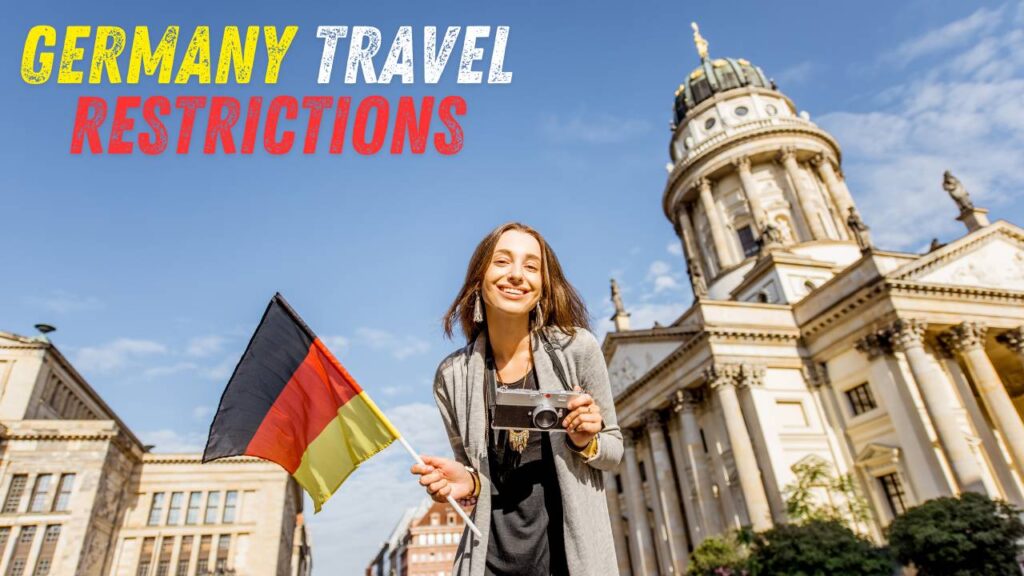Traveling to Germany has always been an exciting experience for tourists around the world. The country boasts a blend of modern cities, medieval towns, breathtaking nature, and a rich cultural heritage that draws millions every year. With ongoing global health concerns and evolving political landscapes, staying updated on the latest Germany travel restrictions is essential for anyone planning a visit.
These restrictions impact everything from entry requirements and health protocols to transportation and quarantine rules. This article provides a comprehensive overview of what tourists need to know right now to navigate these restrictions smoothly and enjoy their trip without unexpected hurdles.
Current Entry Requirements for Tourists
Germany requires all travelers aged 12 and older to present valid proof of COVID-19 vaccination, recent recovery from the virus, or a negative COVID-19 test before entering the country. The vaccines accepted include those approved by the European Medicines Agency, such as Pfizer-BioNTech, Moderna, AstraZeneca, and Johnson & Johnson. You must complete your vaccination course at least 14 days before arrival to qualify. If you are unvaccinated or fail to meet these conditions, you must provide a negative COVID-19 test taken within 48 hours before entry and face stricter quarantine requirements.
To manage risks effectively, Germany categorizes countries into low-risk, high-risk, and virus variant areas. Travelers from low-risk countries experience fewer restrictions, while those from high-risk or variant areas undergo enhanced screening, possible quarantine, and mandatory testing. Because these classifications change frequently based on global infection trends, always check the latest updates from official German government sources shortly before traveling.
Quarantine and Testing Rules
Germany enforces quarantine and testing measures primarily to control virus transmission from arriving travelers. Unvaccinated visitors or those coming from high-risk countries must quarantine for up to 10 days. You can reduce this quarantine to five days by testing negative for COVID-19 after that period and notifying local health authorities. Ignoring quarantine rules can lead to hefty fines or legal penalties, so adhering strictly to these regulations is essential.
If you are vaccinated or have recently recovered from COVID-19, you typically avoid quarantine but should still expect random testing at border controls. Germany requires all travelers to complete a digital registration form before arrival. This form collects your contact and travel information, allowing health authorities to perform contact tracing if necessary. Note that some German federal states impose additional quarantine or testing rules, so research your specific destination to avoid surprises.
Health and Safety Protocols Within Germany
Once inside Germany, you will notice that health and safety measures vary slightly between federal states. Most regions still mandate mask-wearing on public transportation, in hospitals, and in many indoor public spaces such as shops and restaurants. Many places enforce the “3G” rule—meaning you must prove you are either vaccinated (geimpft), recovered (genesen), or tested (getestet) to access venues like museums, theaters, hotels, and dining establishments.
Tourist attractions and cultural sites often limit visitor numbers, require advance bookings, and introduce timed entry slots to reduce crowding. You will find widespread use of hand sanitizer stations and contactless payment options to minimize physical contact. Social distancing remains encouraged, especially in busy areas. Respecting these rules helps protect everyone and contributes to a positive travel experience.
Travel Documentation and Visa Information
Besides health-related entry criteria, travelers must prepare the correct documentation to enter Germany. Citizens of EU/EEA countries and visa-exempt nations can enter for short stays (up to 90 days) without a visa. Travelers from countries that require a Schengen visa must apply in advance, providing documents such as proof of accommodation, travel itinerary, and evidence of sufficient funds.
Tourists should carry travel insurance that covers COVID-19 related medical costs, hospitalization, and trip cancellations. Many airlines and visa processes now require proof of such insurance. Also, verify that your passport is valid for at least three months beyond your intended departure date to avoid entry issues.
Transportation and Border Controls
Germany shares borders with many European countries, with open travel typically allowed within the Schengen Area. Due to COVID-19, travelers face enhanced health screenings and documentation checks at airports and major land borders. Air travelers undergo document verification and may be randomly tested for COVID-19 upon arrival. Several German airports offer rapid antigen testing onsite, which can help fulfill post-arrival testing requirements.
Train and bus travelers crossing into Germany should be prepared for spot checks and carry their health documents at all times. Domestic travel within Germany is mostly unrestricted, though mask-wearing rules often apply on public transport and in stations. Tourists renting cars should note that many German cities enforce environmental zones (Umweltzonen) requiring special stickers on vehicles, and urban parking can be regulated strictly.
Changes and Updates to Germany Travel Restrictions
Germany updates its travel restrictions regularly, responding quickly to changes in infection rates and the emergence of new virus variants. These frequent changes mean you must stay informed through official sources such as the German Federal Foreign Office and the Robert Koch Institute. Airlines also update their requirements for boarding and pre-flight testing.
Registering your trip with your home country’s embassy in Germany is advisable. This step ensures you receive timely assistance if travel restrictions tighten suddenly or emergencies arise. Flexibility remains essential for travelers in this unpredictable environment, so prepare to adapt your plans as necessary.
Tips for Tourists Traveling to Germany Now
To avoid last-minute problems, verify your vaccination certificates and COVID-19 test results well before your trip. Carry both printed and digital copies of all documents. Book accommodations and activities that follow local COVID-19 protocols and offer flexible cancellation policies.
Purchase comprehensive travel insurance that includes COVID-19 coverage to protect against unexpected medical expenses or trip disruptions. Familiarize yourself with local emergency numbers and customs. Consistently wear masks when required, maintain good hygiene, and respect social distancing guidelines. These efforts protect your health and help ensure your visit to Germany is enjoyable and trouble-free.
Germany Visa Process: Eligibility, Application & Processing Time
Staying informed and prepared will help you avoid inconveniences and ensure your visit to Germany is enjoyable and trouble-free, even amid ongoing global challenges.
FAQs
1. What are the current entry requirements for tourists traveling to Germany?
Tourists entering Germany must provide proof of full COVID-19 vaccination, recovery from a recent infection, or a negative PCR/antigen test taken within a specified timeframe. Entry rules also depend on the traveler’s country of origin and its risk classification by German authorities.
2. Are unvaccinated travelers allowed to enter Germany?
Yes, unvaccinated travelers can enter but are subject to stricter rules, including mandatory quarantine and testing requirements. Quarantine duration and exemptions vary depending on the traveler’s country of departure and reason for travel.
3. Do travelers have to quarantine upon arrival in Germany?
Quarantine rules depend on vaccination status and the risk level of the country you are arriving from. Unvaccinated travelers from high-risk or virus variant areas usually must quarantine for up to 10 days, which can be shortened with a negative test after five days.
4. Is a COVID-19 test required before flying to Germany?
Yes, all travelers typically need to provide a negative COVID-19 test result (PCR or antigen) taken within 48 hours before arrival unless they are fully vaccinated or have recovered from COVID-19 recently.
5. What types of COVID-19 vaccines are accepted for entry into Germany?
Germany accepts vaccines approved by the European Medicines Agency (EMA), including Pfizer-BioNTech, Moderna, AstraZeneca, and Johnson & Johnson. Travelers must have completed the full vaccination course at least 14 days before entering.
6. Are there any specific travel restrictions for children?
Children under 12 years old are generally exempt from quarantine and testing requirements but must still be accompanied by adults who comply with all entry regulations. Policies may vary, so checking the latest updates before travel is recommended.
7. Can tourists travel freely within Germany once they arrive?
Domestic travel within Germany is largely unrestricted, but local health measures such as mask mandates and “3G” rules (vaccinated, recovered, tested) may apply in public transport, restaurants, and cultural venues depending on the region.
8. Do tourists need travel insurance to enter Germany?
While not always mandatory, travel insurance covering COVID-19 related medical expenses and trip cancellations is highly recommended. Some airlines and visa applications may require proof of adequate insurance coverage.
9. How can travelers stay updated on changing Germany travel restrictions?
Travelers should regularly check official websites such as the German Federal Foreign Office and the Robert Koch Institute. Airlines also provide updates, and registering with your embassy can offer additional alerts and assistance.
10. What documentation should tourists carry when traveling to Germany?
Tourists must carry a valid passport, proof of vaccination or negative COVID-19 test results, travel insurance documents, and any required visas. Digital and printed copies of all documents are advisable for smooth border control processing.






